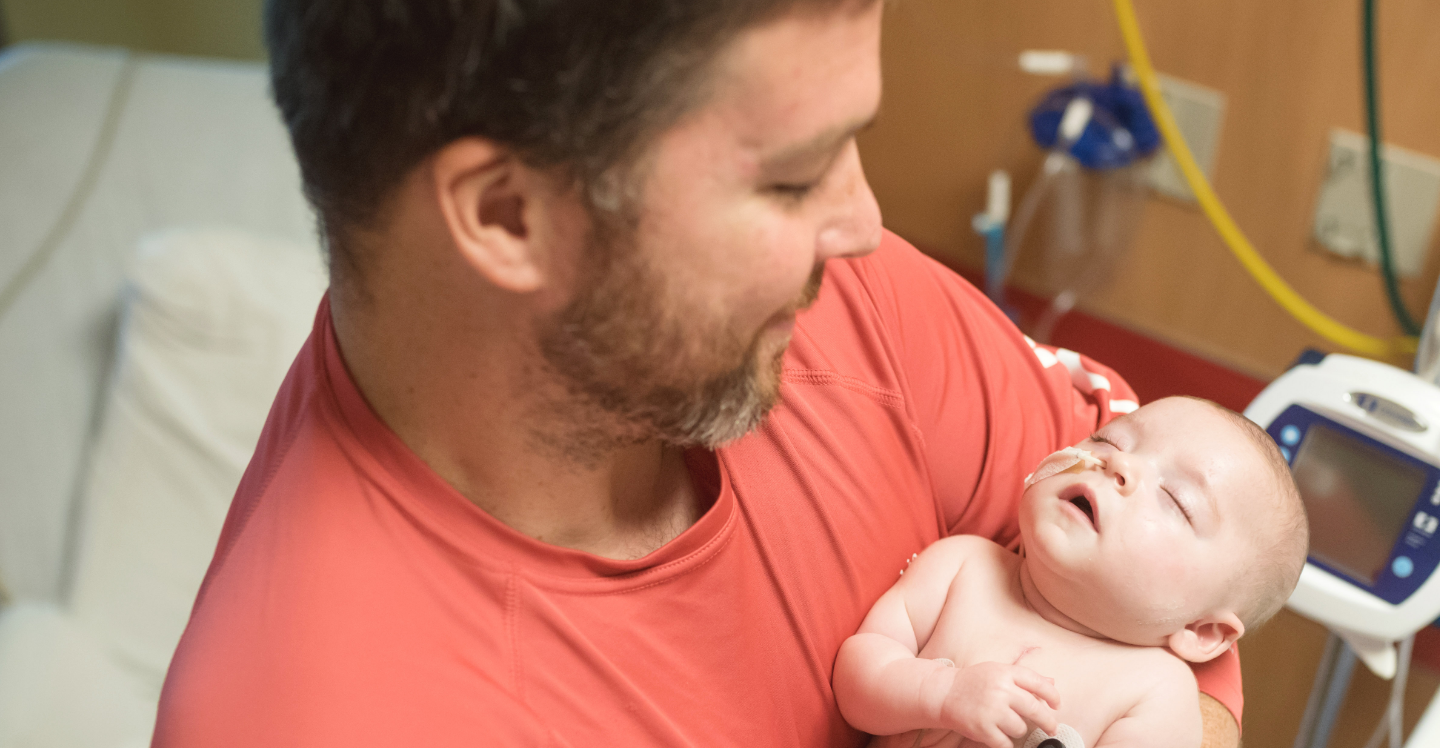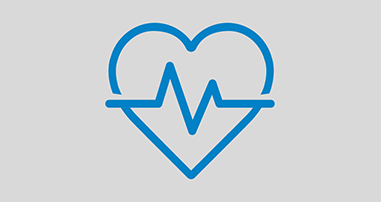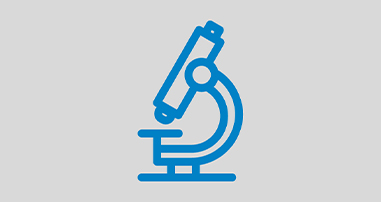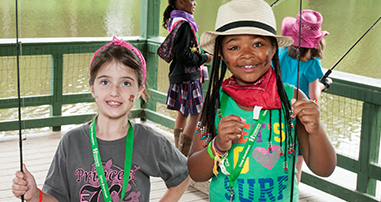The Children’s Healthcare of Atlanta Heart Center is one of the largest pediatric heart centers in the country and the only nationally ranked pediatric cardiology and heart surgery program in Georgia.* Our team of cardiothoracic surgeons performs hundreds of heart surgeries for babies, kids and teens each year, more than anyone else in the state.** Skilled in treating all kinds of heart conditions—including some of the most rare and complex—our team delivers excellent surgical outcomes.** That’s why more parents trust us with their child’s heart than anyone else in Georgia. **
The Children’s Heart Center team is made up of experienced cardiothoracic surgeons, cardiologists, cardiac anesthesiologists, cardiac nurses, respiratory therapists and advanced practice providers who understand children—not just their hearts. Each is committed to providing a family-centered approach to care, and will guide you and your child through each stage of treatment to make your experience as seamless as possible.
Why choose the Children’s Heart Center?
If your child has been diagnosed with a heart condition, you can count on us to provide them with the comprehensive, quality care they deserve. This includes:
- Family-centered care
- Excellent surgical outcomes
- Comprehensive heart services
We offer a variety of educational resources to inform families and empower them to partner with us in their child’s care.
We perform hundreds of cardiothoracic surgeries annually, with excellent survival rates despite performing some of the most complex procedures.
At Children’s, you have access to specialty heart care as well as a variety of support services to meet your family’s social and emotional needs. Our team will guide you through every stage of treatment, coordinating care to streamline your experience.
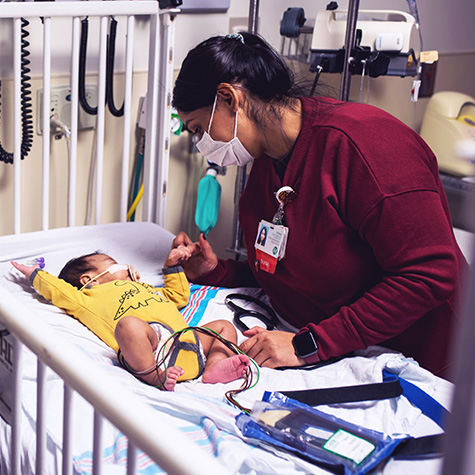
Your Child's Heart Deserves Nationally Ranked Care
Children’s has the only nationally ranked cardiology and heart surgery program for kids and teens in Georgia.
learn moreEach year, approximately 1% of babies in the U.S. are born with a congenital heart defect (CHD), also known as congenital heart disease. If your child has a CHD, they may need surgery within the first few years—or even days—of their life. Our surgeons are skilled in the latest proven operative techniques, with high volumes that are a testament to our team’s expertise in treating all kinds of heart problems in infants and children, from the more common to the most complex.
What pediatric heart conditions require surgery?
Some of the pediatric heart defects that may require surgery include:
- Coarctation of aorta
- Heart failure
- Hypoplastic left heart syndrome (HLHS)
- Tetralogy of Fallot
- Transposition of great arteries
- Truncus arteriosus
- Ventricle septal defect (VSD)
Which pediatric heart surgeries do Children’s cardiothoracic surgeons perform?
Our team is experienced in treating and repairing complex heart defects and conditions in the tiniest of hearts. Some of the most common cardiothoracic surgery our team performs include:
- Arterial switch: The arterial switch procedure is an open heart surgery that switches an improperly connected pulmonary artery and aorta back to the correct location. The procedure may be used for transposition of the great arteries or other forms of heart disease in which the great arteries are rotated incorrectly.
- Surgeries for Hypoplastic Left Heart Syndrome (HLHS)
- Norwood procedure: The Norwood procedure is the first in a series of three open heart surgeries performed on children with HLHS and other variants of single ventricle heart defects in which the left heart structures do not develop properly. This surgery redirects oxygen-rich blood from the right ventricle to the body rather than to the lungs.
- Glenn and Fontan procedures: The Glenn and Fontan procedures are done to redirect blood flow because one of the two ventricles cannot pump blood effectively. It may be weak, small or missing altogether. The Glenn and Fontan procedures allow blood to be routed directly to the lungs, leaving the working ventricle to pump blood to the body.
- Ross procedure: The Ross procedure replaces a narrowed or leaky aortic valve. First, the surgeon takes out the defective aortic valve and replaces it with the patient’s pulmonary valve. The new aortic valve allows the left ventricle to pump oxygen-rich blood to the body. The pulmonary valve is then replaced with a pulmonary valve from a deceased donor, which allows oxygen-poor blood to flow from the right ventricle into the pulmonary artery to the lungs.
- Heart transplant: A heart transplant is an open heart surgery performed when a child’s own heart muscle becomes too weak to pump enough blood through his body. A heart transplant replaces a diseased heart with a donor heart and pumps blood to the body and lungs.
- Intra-aortic balloon pump
- Device implantation
- Repair of tracheal defects, vascular rings and aortic abnormalities
- Trauma management to the heart, arteries and organs
Advancements and Innovation in Pediatric Heart Care
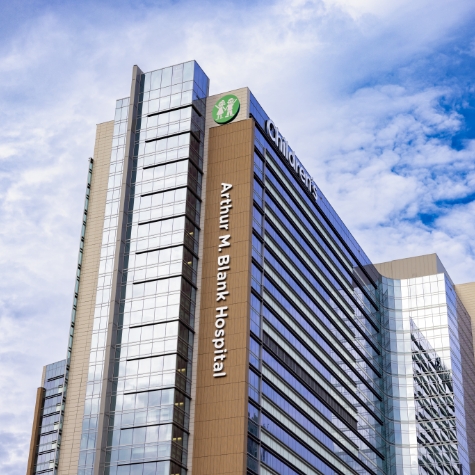
Arthur M. Blank Hospital
With the opening of Arthur M. Blank Hospital, clinical services at Egleston Hospital, the Emory Children’s Center and the Aflac Cancer and Blood Disorders Center moved to the new hospital.
learn moreOur team will guide you through every phase of your child’s treatment, providing you the information you need to make informed decisions and empowering you to partner with us in your child’s care.
If you’re pregnant with a baby who has a CHD or a heart condition, our partnership begins even before your baby arrives. Our Fetal Cardiology Program team will work closely with you and your doctors to create a delivery plan that is best for your baby and family.
How can I prepare before surgery day?
We want you to feel confident about your child’s treatment plan, and we encourage you to take time to prepare for surgery day by:
- Asking questions
- Touring the facility
- Participating in a simulation
We are here for your family and to answer any questions you have.
Touring the hospital before surgery can help ease concerns and help you understand what to expect.
If you’re expecting a baby who will need heart surgery after birth, we offer special simulations that have been shown to reduce anxiety in expecting parents. We offer simulations of both our Cardiac Intensive Care Unit (CICU) and Cardiac Acute Care Unit (CACU) to help you experience what it will be like after your baby has heart surgery. The simulation features a newborn-size doll that has all of the post-surgical tubes, wires, lines, drains and equipment that you will see in real life. You can hear the equipment sounds, learn the roles of each member of your child’s care team and ask questions.
Parents are updated by our operating room staff at the beginning of any surgical procedure and every one to two hours thereafter. Once the procedure is complete, a member of our surgery waiting room team will escort you to a consult room, where the surgeon will give you details about your child's procedure.
After your child’s surgery, they will be taken to the Cardiac Intensive Care Unit (CICU). Children’s CICU is one of the largest dedicated CICUs in the country and is ranked in the top five in the nation for CICU volumes, surgical procedures and catheterization procedures.
Once your child is medically stable, they will be moved from the CICU to the Cardiac Acute Care Unit (CACU), where they will receive care from our specially trained pediatric cardiac nurses and cardiology team.
We encourage you to stay overnight with your child in the CACU room. During your stay, our team will help you understand how to safely care for your child when you return home.
Each day, your child will have many visits from their care team. Parents are encouraged to attend and participate in medical rounds because this is a great opportunity to ask questions and have your opinions heard.
During rounds, our team begins by reviewing a child's medical history, as well as key events or issues from the past 24 hours. They discuss current medicines, vital signs, lab values, chest X-rays and other important information. They will then make a medical plan of care for the next 24 hours for your child. Rounds begin at 7 a.m. on weekdays and 8 a.m. on weekends. During this time, a staff member will ask parents what questions they have.
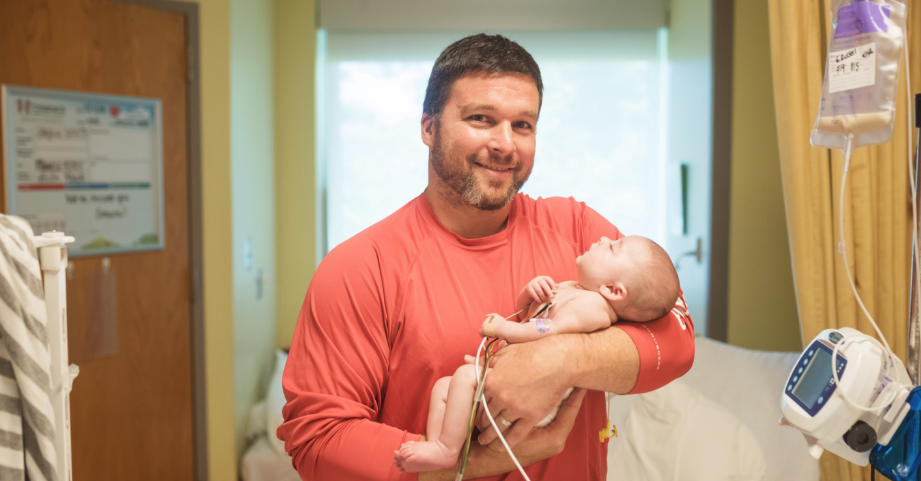
Each child has different needs after surgery. Our team will assess your child’s nutrition, respiratory, physical therapy and medication needs before leaving our hospital, and will work with you to create a plan to care for your child at home. We will also make sure you have educational materials and contacts who can address your concerns.
Before your child goes home, parents are required to attend the following classes:
- CPR class
- Car seat class (if your child is a newborn)
- Cardiac surgery discharge class
All classes are free to parents and caregivers. We require that at least one parent take each class if your child has had heart surgery. The car seat class is required if your child is a newborn and has never been home. You must bring your child’s car seat and base for inspection.
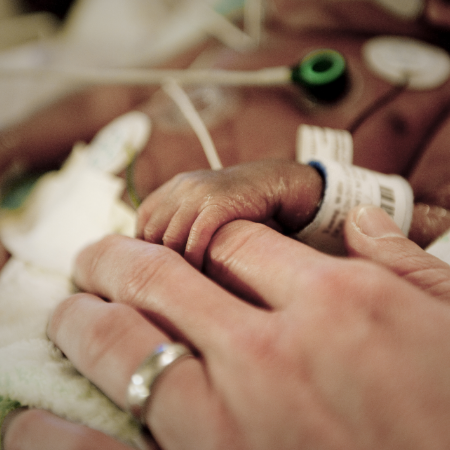
Lifesaving Support for Children
Our Extracorporeal Membrane Oxygenation (ECMO) Center provides lifesaving cardiac and respiratory support to patients whose heart and lungs cannot work on their own. We have one of the few pediatric ECMO centers in the Southeast.
learn moreAt Children’s, your family is at the forefront of care. You are an integral part of the care team, and we will work with you to create plans that are right for your child.
We know that having a child in the hospital can be a stressful and difficult time. We have a team dedicated to helping you navigate the emotional, financial, familial and spiritual challenges, including:
- Chaplains
- Child life specialists
- Family experience liaisons
- Financial services
- Kids at Heart
- Social workers
- Psychologists
At the Heart Center, our Heart Surgery team is dedicated to the well-being and care of children of all ages—birth to age 21—who have been diagnosed with a congenital heart defect. Each of our heart surgeons is certified by the American Board of Thoracic and Cardiac Surgery with a subspecialty in congenital cardiothoracic surgery.
Cardiothoracic surgeons
- Paul Chai, MD, Chief, Cardiothoracic Surgery; Co-Chief, Heart Center
- Subhadra Shashidharan, MD, Associate Chief, Cardiothoracic Surgery
- Joshua Rosenblum, MD, PhD
- Fawwaz Shaw, MD
- Mohan John, MD
Cardiac anesthesiologists
- Laura Downey, MD
- Michael Fiedorek, MD
- Stephanie Grant, MD
- Nina Guzzetta, MD, FAAP
- Anna Hartzog, MD
- Scott Kolesky, MD, PhD, FAAP
- Justin Long, MD, MHI, FAAP
- Bruce Miller, MD
- Katie Roddy, MD
- Steven Tosone, MD
- Elizabeth Wilson, MD
Advanced practice providers
- Madeline Allsopp, CPNP
- Kacy Bagwell, CPNP
- Megan Baker, CPNP
- Abby Bechler-Karsch, PNP-BC
- Emily Becker, CPNP
- Meagan Beech, CPNP
- Katie Berkowitz, CPNP-AC
- Brittany Brennan, CPNP
- Crystal Bryan, CPNP
- Tara Buckhalter, CPNP
- Taylor Bush, PA-C
- Maria Cabrera, CPNP-AC, FNP
- Jennifer Chiles, PA-C
- Nicole Coolidge, CPNP
- Shelby Corder, CPNP
- Caitlyn Coward, CPNP
- Daniel Danilczyk, CPNP
- Madison Demetry, CPNP
- Meghan Engler, CPNP
- Emily Frank, CPNP
- Margrethe Fredericks, CPNP
- Allison Head, PA-C
- Virginia Horan, PA-C
- Kasey Keane-Lerner, PA-C
- Alexandra Kruger, PA-C
- Keyatta Lackey, CPNP
- Patricia Lawrence, CPNP
- Rachel Lindell, PA-C
- Diane Long, CPNP
- Melanie McBrayer, CPNP
- Lauren Meador, PA-C
- Kathleen Murphy, PNP-BC
- Anna Patton, CPNP
- Kasey Pease, CPNP
- Lindsey Prozzillo, CPNP
- Brittany Scoville, CPNP
- Ashley Smith, CPNP
- Kristin Smith, CPNP
- Amelia St John, CPNP
- Meghan Stowell, CPNP
- Isabel Walker, PA-C
- Kimberly Woodall-Williams, CPNP

Inpatient and Outpatient Support for Kids with Heart Conditions
Children with heart defects and conditions are more likely to have developmental delays and problems with attention and learning. Our team understands the unique needs of cardiac patients and works with you to create plans for their hospitalization and after they return home.
learn more*No. 12 on the U.S. News & World Report “Best Children’s Hospitals” list for 2024-25.
**Georgia Hospital Association (GHA) by hospitals in Georgia, ages 0-18 (2023). Does not include any freestanding ambulatory surgery data.
Contact Us 404-785-6330
